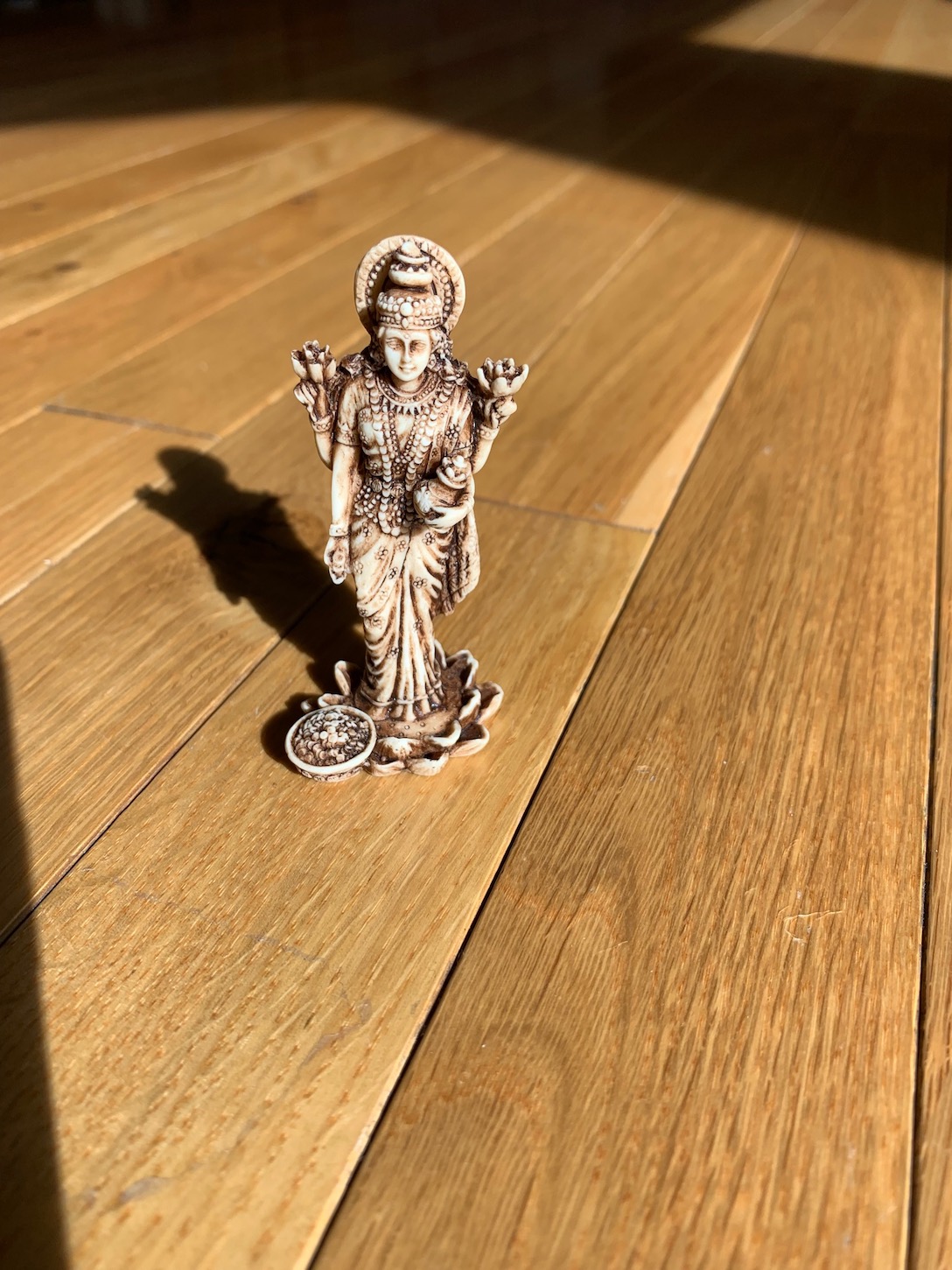 Lakshmi is the goddess of wealth, fortune, power, luxury, beauty, fertility, and auspiciousness. She holds the promise of material fulfilment and contentment. She is described as restless, whimsical yet maternal, with her arms raised to bless and to grant. For centuries Hindus have invoked her thus:
Lakshmi is the goddess of wealth, fortune, power, luxury, beauty, fertility, and auspiciousness. She holds the promise of material fulfilment and contentment. She is described as restless, whimsical yet maternal, with her arms raised to bless and to grant. For centuries Hindus have invoked her thus:
Beautiful goddess seated on a chariot,
Delighted by songs on lustful elephants,
Bedecked with lotuses, pearls and gems,
Lustrous as fire, radiant as gold,
Resplendent as the sun, calm as the moon,
Mistress of cows and horses —
Take away poverty and misfortune
Bring joy, riches, harvest and children.
Along with Parvati and Saraswati, she forms the trinity of Hindu goddesses
Lakshmi is depicted in Indian art as an elegantly dressed, prosperity-showering golden-coloured woman standing or sitting in padmasana on a lotus throne, while holding a lotus in her hand, symbolizing fortune, self-knowledge, and spiritual liberation. Her iconography shows her with four hands, which represent the four aspects of human life important to Hindu culture: dharma or righteousness, kāma or desires, artha or wealth, and moksha or liberation from the cycle of birth and death.
The lotus, a flower that blooms in clean or dirty water, also symbolizes purity regardless of the good or bad circumstances in which it grows. It is a reminder that good and prosperity can bloom and not be affected by evil in one’s surroundings
Below, behind, or on the sides, Lakshmi is very often shown with one or two elephants and occasionally with an owl. Elephants symbolize work, activity, and strength, as well as water, rain and fertility for abundant prosperity. The owl signifies the patient striving to observe, see, and discover knowledge, particularly when surrounded by darkness. As a bird reputedly blinded by daylight, the owl also serves as a symbolic reminder to refrain from blindness and greed after knowledge and wealth have been acquired.
In some representations, wealth either symbolically pours out from one of her hands or she simply holds a jar of money. This symbolism has a dual meaning: wealth manifested through Lakshmi means both materials as well as spiritual wealth. Her face and open hands are in a mudra that signifies compassion, giving or dāna (charity).
Many Hindus worship Lakshmi on Diwali, the festival of lights. It is celebrated in autumn, typically October or November every year. The festival spiritually signifies the victory of light over darkness, knowledge over ignorance, good over evil and hope over despair.
Hindus believe that anybody who worships Lakshmi sincerely, and not in greed, will be blessed with fortune and success. It is said that Lakshmi resides in places of hard work, virtue and bravery, but leaves whenever these qualities are not apparent any more.